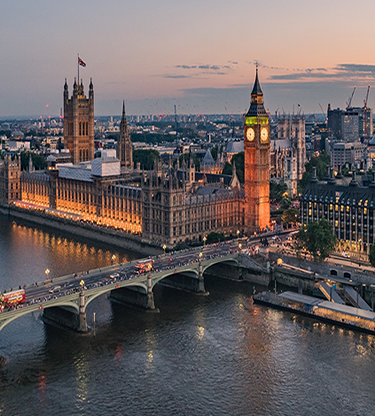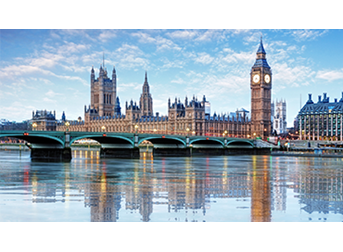Opening a bank account in the UK

How to open a bank account in UK
4 minute readMoving to the UK and starting a new life here will require that you open a UK bank account, to receive payment either from your salary or from your holdings abroad. Fortunately, the process is relatively simple and offers a number of choices for you to open a UK bank account perfectly suited to your needs.
No matter the reason you’ve moved to the UK, whether for work, to study abroad or for your retirement, opening a UK bank account will help get you started and offer some financial stability.
Can a foreigner open a bank account in the UK?
As long as you are a British resident, you are able to open a bank account in the UK. However, the process may vary depending on the country you are a citizen of, as well as the regulations that certain banks hold.
What do I need to open a bank account in the UK?
The documents and identification that you need to open a bank account in the UK may differ depending on the bank you visit, however the following items are typically required for an account to be opened:
- One form of identification (e.g passport, driving license or EU identity card)
- One form of proof of address (e.g a tenancy agreement, mortgage statement, recent utility or council tax bill or recent bank account statement)
If you are yet to register a UK address when it comes to opening your bank account, or you are opening a bank account before you arrive in the country, you will find that many banks can be lenient and accept documents such as a university admissions letter or job certificate as proof of address in the UK.
Can you open a UK bank account from overseas?
Opening a bank account from abroad is possible with most UK banks, helping to speed up the process and get your account started before you arrive. This is a particularly convenient process if your bank has a corresponding banking relationship with one in the UK. There are also specific international bank accounts that can be opened with some of the major UK banks, which are designed for non-residents and can be opened from abroad.
However, you may find that you can open a more appropriate account for yourself and one with alternative incentives if you wait until after arriving in the UK and are able to shop around before opening your account.
Which UK banks can I open an account with?
There are a large number of banks you could open an account with after moving to the UK, with the most popular choices among the population being the “big four banks”. These banks are as follows:
- Barclays
- HSBC
- Lloyds
- RBS/NatWest
Each of these banks will offer slightly different benefits and incentives, while rates and fees will differ depending on which you opt for. It’s always best to spend some time and shop around so that you can make the most informed decision for your banking needs.
How can I transfer money from abroad to the UK?
All banks within the UK will allow you to send and receive money from abroad, while most other countries allow you to send money to the UK from there. Your bank in your home country may, however, incur transfer fees and offer a lower exchange rate to convert your money when you make a payment to the UK. Making regular payments to and from your home country may then incur large amounts in fees and see you miss out on a better exchange rate for your transfers.
With a moneycorp account for your international currency exchange, you can enjoy a competitive rate and low fees when you send money to and from the UK. This way you can get more for your money when you send money back home and when you transfer funds over for your new life in the UK.



